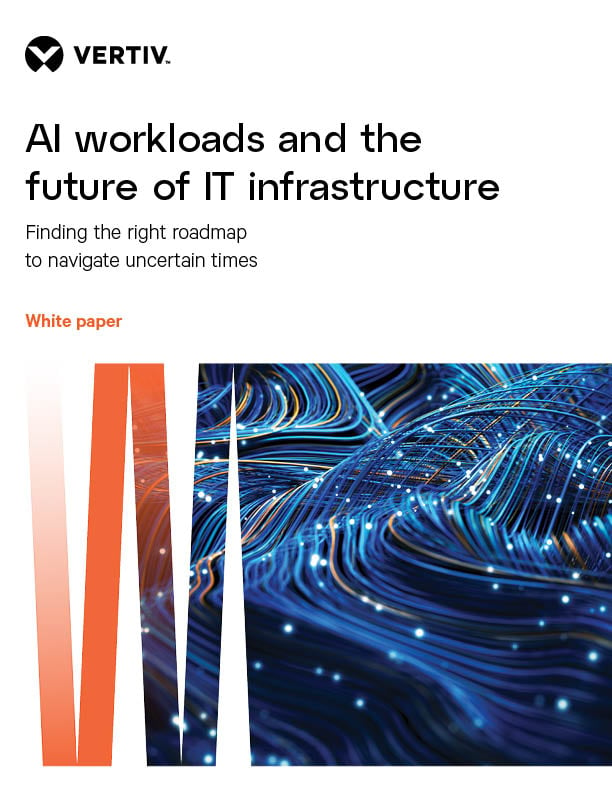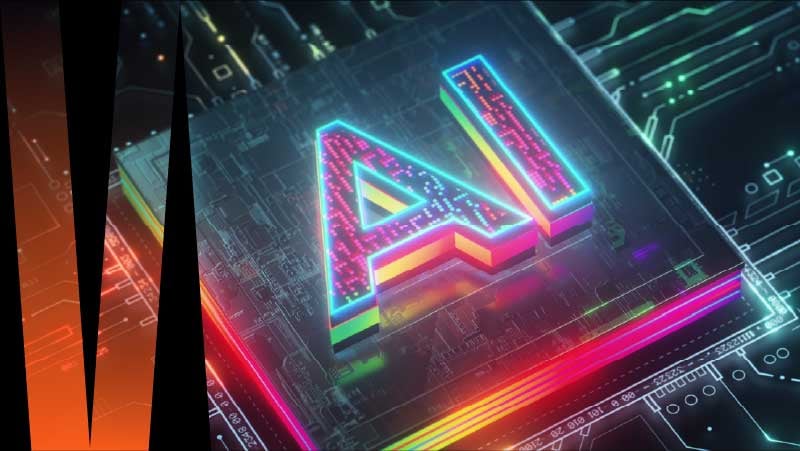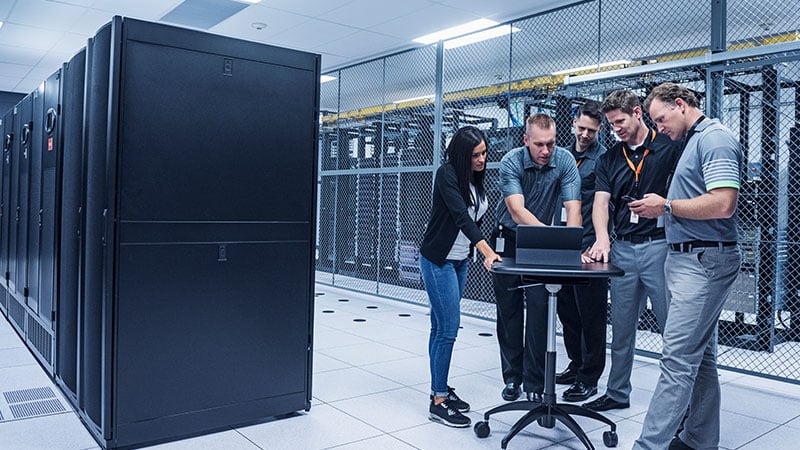The future of IT infrastructure
With AI causing disruptions from the physical infrastructure to the way companies must plan for their growth, finding a credible roadmap to guide businesses’ futures can lessen the uncertainties, challenges, and risks.
AI's rapid advancement is creating unprecedented opportunities and challenges within the IT infrastructure. From the meteoric rise of rack densities to the necessity for always-on power and innovative cooling solutions, the landscape — as we know it — is changing.

While AI is transforming data centers and the way it is used and consumed, this revolution is just beginning. Current trends indicate that AI workloads in data centers will represent over 40% of total capacity by 2027. This glimpse in surge has already brought significant changes to the architecture, energy usage, and cooling systems. And many are still playing catch-up even as more changes and developments continue to occur.

“Now we have an incredible tool in AI that can mine data and unleash its hidden value. But this also means you have to be prepared for the profound changes in the infrastructure necessary to support AI.”
Chief Technology Officer and Executive Vice President, Vertiv
The energy demand challenge
AI is and will continue pushing for scalable power demands, advanced cooling systems, and overall data center management and service capacity in critical digital infrastructure. One of the most noteworthy trends is the dramatic rise in rack density. Current high rack densities of 50kW per rack are projected to surge to 540kW or even 1MW by 2029. This increase isn't just a figure; it's a harbinger of the sweeping changes to come.
| 2024 | 2025 | 2027* | 2029+* | |
| Rack architecture Rack form factor will likely change in size and configuration from 2027 onwards and will likely not correspond to the EIA and OCP versions used today. |
Up to 50kW per rack with 400/230VAC N+1 power distribution. Cooled using liquid-to-air rear-door heat exchangers. |
Up to 140kW per rack with 400/230VAC or 400VDC N+1 power distribution. Cooled using one-phase liquid-to-chip cold-plates (80% of heat load), augmented by liquid-to-air rear-door heat exchangers (20% of heat load). |
Up to 300kW per rack with 400/230VAC or 400VDC N+1 power distribution. Cooled using liquid-to-chip cold plates, augmented by liquid-to-air rear door heat exchanger. |
Densities up to 1MW per rack. 480/277V AC, 600/347V AC or 800V DC by 2031 should be considered in the design. 400/230VAC or 400VDC N+1 power distribution. Cold-plate cooling (100% of heat load) should be considered in the design. |
Aside from the summary table on the upward trajectory of rack architecture above, our research and projections for the next few years include changes and growth in the GPU and row architecture, power management, graphics processing unit (GPU) workloads, thermal cycles, heat reuse, and AI performance surge factors, and controls for all the integrated systems. To find the complete table of the biggest developments in the IT infrastructure and its equivalent in the power and cooling systems, download our paper today.
Other key challenges and opportunities
Operators are transitioning from air cooling to advanced air-assisted or solely liquid cooling methods. They are in the unique and opportune period of combining technologies from their air cooling solutions and using their current retrofitted equipment to accommodate liquid cooling in phased deployments.
Scalable power solutions
Addressing the growing power demands and managing pulse loads effectively. Dependence on the power grid supply might prove detrimental to operators trying to keep service uptime and improve invested assets’ resilience. Distributed energy resources (DERs) can provide that bridge for stored, distributed, and managed energy loads during emergencies and routine operations.
Future-anticipatory designs, skills, and implementations
Integrating flexible solutions to accommodate evolving AI models and computational needs. Traditional vendor-customer relationships of having minimal interactions once products are delivered will no longer work. Instead, a continuous collaborative relationship will have to be maintained from planning, designing, and scaling to deploying, monitoring, and end-of-life implementation of hardware, services, and upskilling certifications in anticipation of the evolving requirements and demands on the critical digital infrastructure.
What will the future of IT infrastructure look like?
Understanding these shifts is crucial for anyone relying on AI to drive growth and innovation and requires more than a cursory glance at current trends. Vertiv experts weigh in on what the landscape will look like in the coming years, from the rise in rack densities to the future of cooling technologies. Click on the expert to find some of their insights on how companies and data centers can leverage the challenges and opportunities that AI brings.

Peter Panfil
Vice President, Global Power, Vertiv on powering the future
“What is the secret to meeting these power challenges? I think a big part will be anticipating the more specific changes in power. You need to know where the chip makers are headed, and you need to know what the IT industry insiders think.”

Stephen Liang
Chief Technology Officer and Executive Vice President, Vertiv on the increasing complexity of future resilience
“We can see how AI demands often require different levels of resilience for different functions. For example, the resilience needed for training is different from the resilience needed for inference… In the future, resilience will not always be about protecting the app but instead protecting the asset value.”

Martin T. Olsen
Senior Vice President, Global Product Strategy, Vertiv on learning to leverage current assets
“In an environment that is rapidly changing, how do you leverage what you already have in place without risking becoming obsolete? Many data center operators will need to consider retrofitting their assets. But as rack densities continue to grow at an accelerated rate, simply deciding upon a retrofit will not be enough. Instead, you will need to consider what densities you are retrofitting for and what cooling technologies will be necessary as part of your retrofit.”

Gregory Ratcliff
Chief Innovation Officer, Vertiv on product and service innovations
“If you want to be ready for the future, partner with a company that has deep ties with tech leaders and innovators. Because in today’s environment, you may be focused on the ‘now,’ but you also need to keep an eye on the ‘near’ and ‘far.’”
Explore the opportunities of an AI-driven critical digital infrastructure
Knowing the future is one thing; preparing for it is another. This paper offers actionable strategies for data center operators, personnel, and decision-makers to ensure their IT infrastructure is ready for the challenges and opportunities AI can bring. From scalable power solutions to flexible design integrations, enable those changes and adoptions by getting practical advice that can be implemented today.




